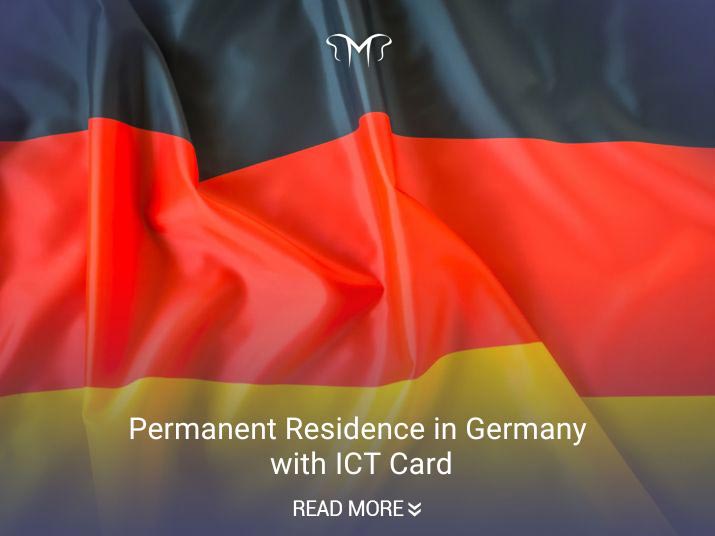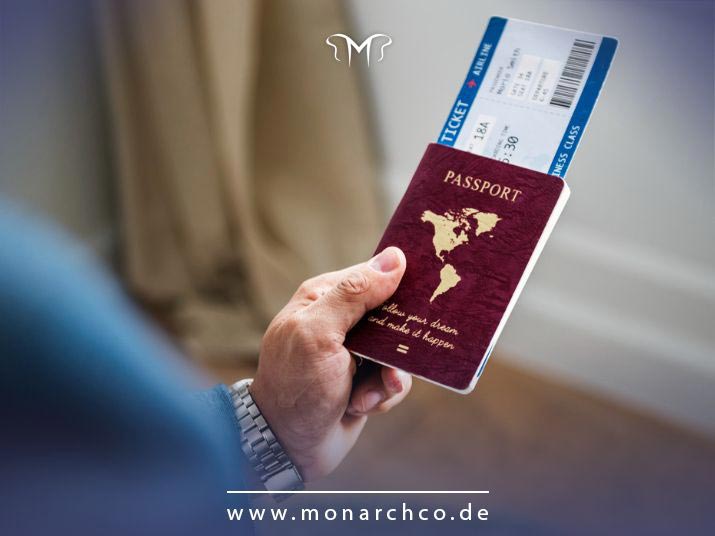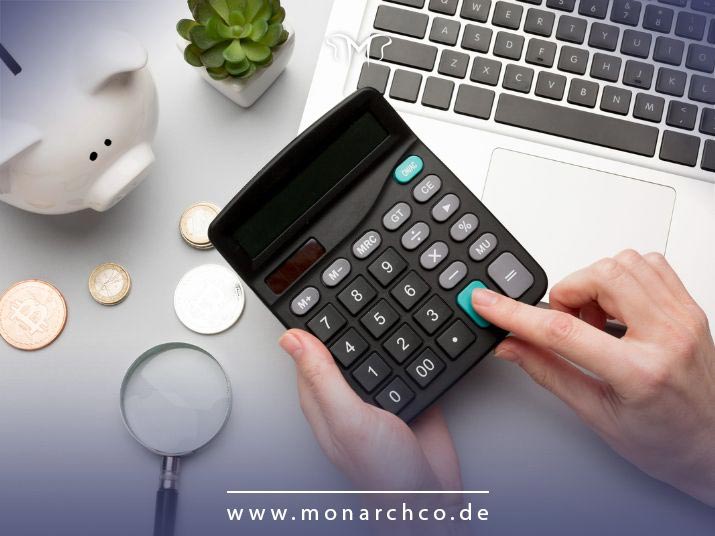
Permanent Residence in Germany with ICT Card
The Intra-Corporate Transfer (ICT) card, originating from European laws and regulated in the German Residence Act (AufenthG), offers a pathway for specialists, managers, and trainees from third countries to work temporarily in a European branch. Therefore, the ICT card serves as a temporary residence permit for employees to work temporarily in a domestic branch of a company located outside the European Union. In this article, we discuss immigration to the European Union with an ICT card from "Monarch Immigration Institute.
What is the ICT Card in Germany?
The term ICT stands for Intra Company Transfer. The ICT permit is suitable when employees are transferred from a foreign company to its German branch. If a worker is temporarily employed by a German company that is part of the same company, they can apply for an ICT permit.
One of the main features of the ICT permit is that the employee remains active in the field of information and communication technology in their home country employment contract, so they continue to receive their rights from their home country employer. The German company provides the workspace for the employee and may also offer other benefits such as housing support, a car, or additional payments. However, no employment relationship is established between the worker and any German institution.
Types of ICT cards in Germany: ICT Card and ICT Mobility Card
The ICT Mobility Card is designed to facilitate the movement of workers within the European Union. This card allows a worker who is based in one European country to work in a subsidiary company in another European country. The ICT Mobility Card is intended for workers who will reside in the second country for more than 90 days.
For example, a manager from the United States with an ICT card for working in France can work in Germany for more than 90 days using the ICT Mobility Card. However, the duration that the worker will be based in the second country cannot exceed the duration in the country for which they obtained the original ICT card. In the above example, the American manager cannot spend more time in Germany, where they have an ICT Mobility Card, than in France, where they have an ICT card. In cases where a worker is stationed in another branch for a period of less than 90 days during a 180-day period, an ICT Mobility Card is required.
Conditions for Obtaining an ICT Card
For some employees, an ICT card can be issued for internal transfer to a German subsidiary company. However, they must meet specific conditions, including:
- Affiliation with the group of companies
- Internal company transfer of more than 90 days
- Professional qualification
- Minimum of 6 months of employment
- Absence of a probationary period in the employment contract
- Non-European Union citizen
- Possession of a university degree to demonstrate skills
- Valid employment contract between 90 days to one year (for trainees) and 90 days to three years (for specialists/manager)
- The person to be transferred must be employed as a manager or specialist both by the employer and the branch in Germany. A manager is someone employed in a key position primarily managing a branch, department, or subsidiary of a company. A specialist, in the context of residence law, is an individual with necessary specialized knowledge for the company's activities they will be employed in.
Furthermore, the transferred employee must have been employed within the group of companies for at least six months before the transfer. The transfer itself must be planned for more than 90 days. A valid employment contract must also be available for this period, if necessary, a service assignment letter will be essential. Additionally, a professional qualification must be proven relevant to work in Germany.
Approval from the Federal Employment Agency is required. This approval will be obtained from the Foreign Nationals Registration Office or from a German representation abroad. If these conditions are met, the ICT card can be issued for the duration of the internal transfer, but for a maximum of three years. It is also worth mentioning that a minimum of six months must have passed since the last residence as part of the internal transfer and the desired new residence.
If it is planned that activities will be carried out in several EU member states during the internal transfer, an ICT card does not need to be requested separately for each state but only for the state where the longest stay is planned. There are various possibilities for residence in other EU member states. An announcement can be sent to the Federal Office for Migration and Refugees (BAMF) within the framework of short-term mobility for transferred employees or apply for an ICT Mobility card.
ICT Card for Trainees
For trainees from a third-country, non-EU country, an ICT card can also be issued. To do this, they must have a university degree and work as a trainee in a German subsidiary for more than 90 days. A trainee, as defined by the ICT directive, is a university graduate who undergoes a young specialists development program to qualify for further activities within the company or group of companies. If these conditions are met, the ICT card may be issued for a transfer period (up to one year).

How to Apply for an ICT Card in Germany
The ICT Card is required when a company needs to transfer non-EU skilled workers from branches outside the EU to within the EU. However, this criterion applies when the assignment exceeds 90 days. The validity of the ICT Card depends on the applicant's level (such as managers and specialists). This card is valid for 90 days to three years, while for trainees, it's valid for 90 days to one year. The advantage of the ICT Card is its facilitation for skilled individuals to move around.
Compared to the more complex conditions of other visa types, the ICT Card is much simpler. It also allows workers to work across European borders. When applying for an ICT Card, the individual must be aware of the necessary conditions. Although the application may be processed before this deadline, you must apply 90 days in advance to receive your card. Applications that do not meet the specified conditions will be rejected. Additionally, the worker must have the same working and legal conditions as skilled German workers.
The ICT Card is valid for three years for managers and specialists, while for trainees, it's valid for only one year. Using the ICT Card again is possible after the expiration of the original version. The process of applying for this card is as follows:
The application process may be done online. Find out if your immigration office offers electronic applications.
If in-person application is possible, schedule an appointment with the Foreigner Registration Office. During the appointment, you must present your documents for review. Your fingerprints will be taken for the ICT Card.
For electronic applications, the Foreigner Registration Office will contact you after receiving your online application to schedule an appointment if necessary. During the appointment, you must present your documents for review. Your fingerprints will be taken for the ICT Card.
If your application is approved, the Foreigner Registration Office will arrange for the issuance of the ICT Card. After approximately six to eight weeks, you can collect the ICT Card in person from the Immigration Office.
Note: You can send the application to the Federal Office for Migration and Refugees via server. Then, the competent migration authority decides on your application.

What type of visa is required to obtain an ICT card?
To obtain an ICT card, a national visa type D is required. This visa will be issued for long-term stays exceeding three months. The type D visa is used for the following purposes:
- Student visa for Germany
- German visa for vocational training courses
- German visa for job search
- German visa for vocational training course search
- German visa for recognition of foreign qualifications
- EU Blue Card or German Blue Card
- German visa for research
Costs associated with using the ICT card in Germany
The visa fee is €75. Additionally, the cost of obtaining an ICT card ranges from €70 to €113. If your application is rejected, the €75 fee is non-refundable.

Permanent Residence in Germany with ICT Card
The ICT Card provides temporary residence, and if you intend to apply for permanent residence, you must go through the legal steps. Converting the ICT Card to permanent residence is not possible. The ICT residence permit is time-limited and does not count towards the years required for permanent residence status. To obtain permanent residence in Germany, you must pursue migration routes such as various work visas.
Final Note
The ICT (Intra-Corporate Transfer) Card is a temporary residence permit for managers, specialists, or trainees working in companies located outside the European Union, allowing these workers to be transferred to subsidiary companies within the EU. This transfer may last for up to three years and only one year for trainees. You can apply for a new ICT Card only after the end of your previous transfer for a minimum of six months. For more information, contact our consultants at Monarch Migration Institute.


